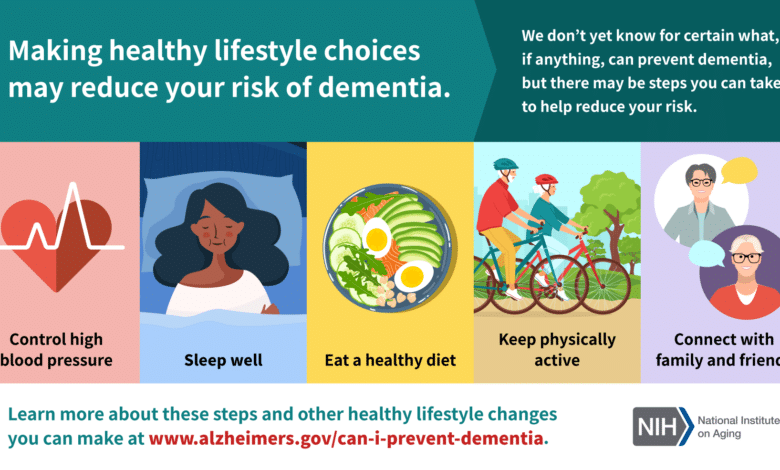Lifestyle Risk Factors: How Your Choices Impact Your Health

Lifestyle Risk Factors: How Your Choices Impact Your Health Understanding lifestyle risk factors is crucial for maintaining good health. Our daily habits and choices significantly influence our overall well-being. From diet and exercise to stress and sleep, the way we live our lives can either promote health or increase the risk of chronic diseases. In this article, we will explore key lifestyle risk factors and provide practical tips for making healthier choices.
What Are Lifestyle Risk Factors?
Lifestyle risk factors are behaviors or conditions related to how we live that can increase the likelihood of developing health problems. Unlike genetic factors, which are inherited and out of our control, lifestyle risk factors are within our power to change. They include aspects of our daily routines, such as what we eat, how much we move, and how we manage stress.
Key Lifestyle Risk Factors
- Diet and NutritionA diet high in processed foods, sugars, and unhealthy fats can lead to obesity, heart disease, and diabetes. Conversely, a balanced diet rich in fruits, vegetables, whole grains, and lean proteins can help prevent these conditions and promote overall well-being.Tips for a Healthier Diet:
- Choose whole foods over processed options.
- Limit sugary drinks and snacks.
-
Physical Activity
Sedentary lifestyles are linked to numerous health issues, including weight gain, cardiovascular disease, and decreased muscle strength. Regular physical activity is essential for maintaining a healthy weight, boosting mood, and improving overall fitness.
Tips for Staying Active:
- Incorporate strength training exercises twice a week.
- Take breaks from sitting by standing or walking around periodically.
-
Sleep Patterns
Quality sleep is vital for health. Poor sleep can lead to a weakened immune system, impaired cognitive function, and an increased risk of chronic diseases. Establishing a consistent sleep routine and creating a restful environment can enhance your sleep quality.
Tips for Better Sleep:
- Avoid screens and heavy meals before bedtime.
-
Stress Management
Chronic stress is a significant risk factor for both mental and physical health issues. It can contribute to anxiety, depression, high blood pressure, and digestive problems. Effective stress management techniques are crucial for maintaining overall well-being.
Tips for Managing Stress:
- Allocate time for hobbies and activities you enjoy.
- Build a support network of friends and family to talk to about stress.
-
Substance Use
The use of substances like tobacco, excessive alcohol, or recreational drugs poses serious health risks. Smoking is strongly associated with respiratory diseases and cancers, while excessive alcohol consumption can lead to liver disease and other health complications.
Tips for Reducing Substance Use:
- If you smoke, seek support to quit.
- Limit alcohol consumption to moderate levels—up to one drink per day for women and two for men.
- Avoid recreational drugs and seek help if you struggle with substance use.
-
Social Connections
Social well-being is often overlooked but is essential for a healthy lifestyle. Strong relationships and social connections contribute to emotional resilience and a sense of belonging. On the other hand, social isolation and loneliness can negatively impact your health.
Tips for Building Social Connections:
- Spend time with family and friends regularly.
- Volunteer or participate in community activities.
- Seek professional help if you experience chronic feelings of loneliness or isolation.
How to Make Positive Lifestyle Changes
Improving your lifestyle involves making gradual changes that become part of your daily routine.
-
Set Realistic Goals
Begin with small, achievable goals that you can gradually build upon. For example, if you’re trying to improve your diet, start by adding one serving of vegetables to your meals each day.
-
Track Your Progress
Keep a journal or use an app to track your diet, exercise, sleep, and stress levels.
-
Seek Support
Having a network of people to encourage and hold you accountable can make a significant difference in achieving your lifestyle goals.
-
Educate Yourself
Stay informed about health and wellness topics. Read articles, attend workshops, or consult with healthcare professionals to learn more about how to improve your lifestyle.
-
Be Patient and Persistent
Changing lifestyle habits takes time and effort. Be patient with yourself and stay persistent, even if you encounter setbacks.
The Role of Healthcare Professionals
Consulting with healthcare professionals can provide valuable guidance on managing lifestyle risk factors. Regular check-ups and screenings can help detect potential issues early and allow for timely intervention. Your healthcare provider can offer personalized advice based on your specific health needs and goals.
Conclusion
Lifestyle risk factors play a significant role in determining our overall health and well-being. By making conscious choices about diet, physical activity, sleep, stress management, and substance use, we can reduce our risk of chronic diseases and improve our quality of life. Remember, adopting a healthier lifestyle is a continuous journey. Start with small, manageable changes, and gradually build healthier habits.
Feel free to adjust this draft as needed to fit the specific style and tone of your blog.




